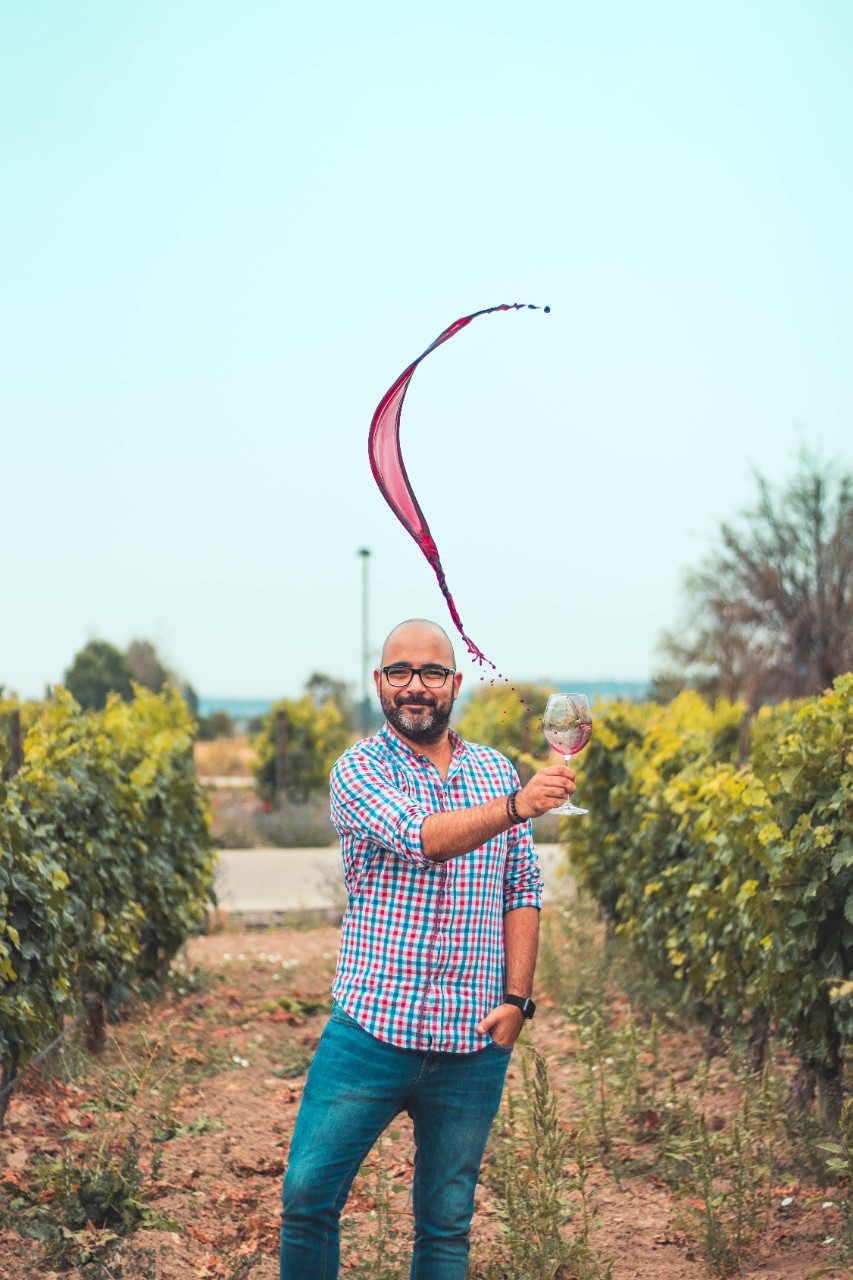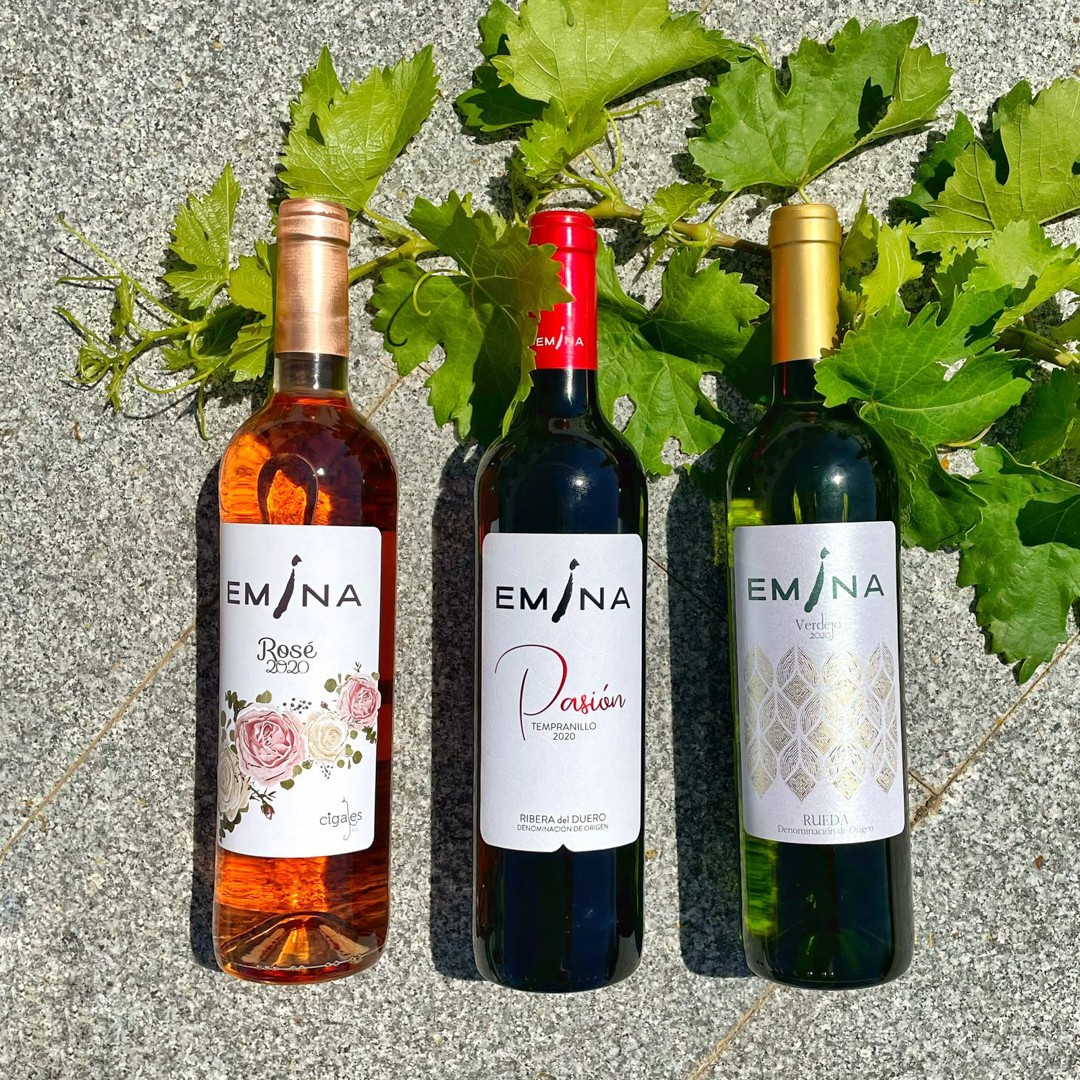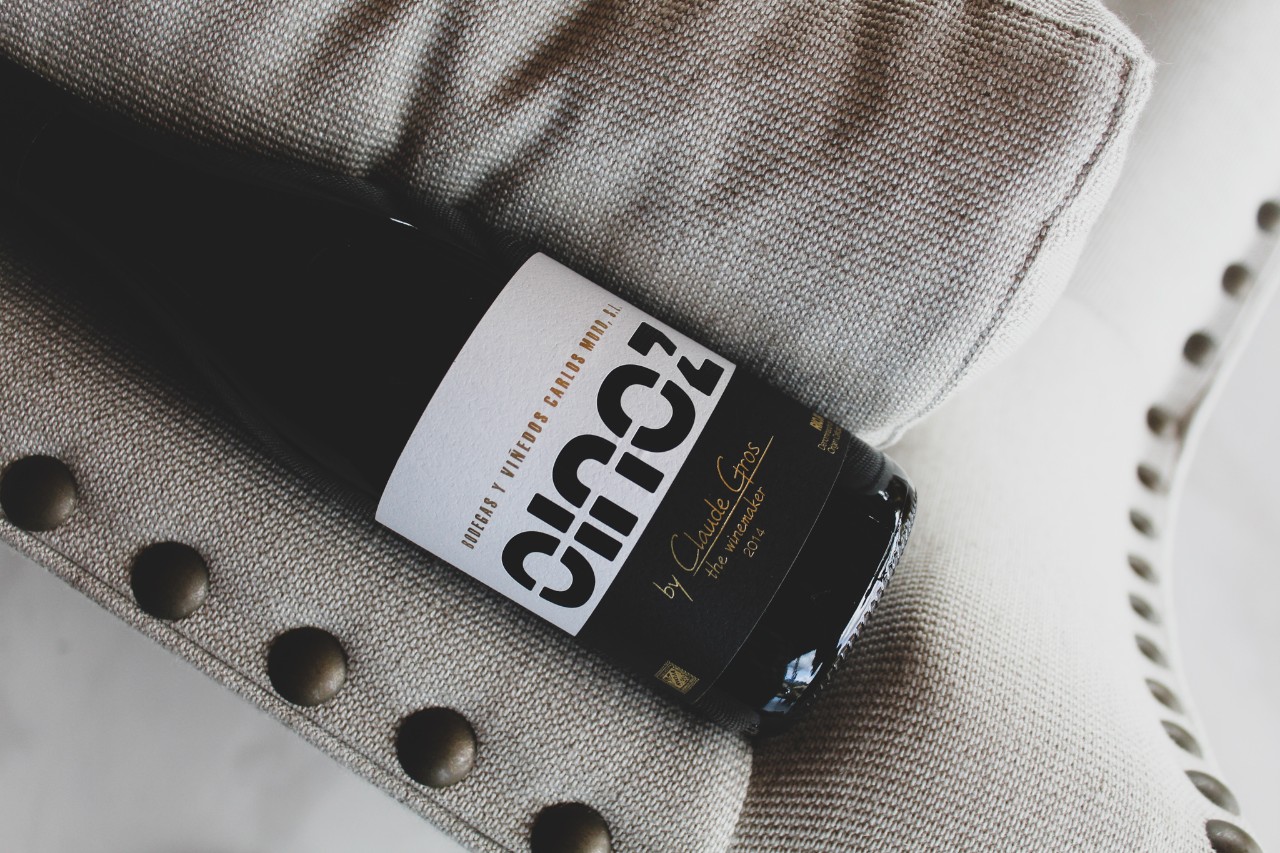Design Can Change The World: A Conversation With Bodega Matarromera
In the heart of Ribera del Duero, on the north slope of the Duero Valley (one of eleven quality wine regions of Castile and León in northern Spain), lies the prestigious Bodega Matarromera winery, founded by Carlos Moro. It has a long and illustrious history that has been passed down through the generations, and has grown into a globally recognized brand whose mission and work extends beyond winemaking to encompass community and environmental support.
Approximately 180 kilometers south of Ribera del Duero, we find ourselves in Madrid, home of the iconic Madrid Design Festival which took place earlier this year. In conjunction with the festival, Avery Dennison and Supperstudio hosted the 'Design can change the world' exhibition to encourage brands to design products, packaging, and labels with values that benefit today's world.
During the festival, we took the opportunity to sit down with Javier Prieto García, Bodegas Matarromera’s Graphic Designer, to learn how the heritage winery aligns itself with important initiatives and why it's necessary for other brands to do the same.


M_use: ‘Design can change the world’, an exhibition by Avery Dennison and Supperstudio at this year’s Madrid Design Festival encouraged brands to do exactly that. What excites you the most about the future of conscious brand design?
Javier: Being able to contribute to global well-being and a better world for future generations is exciting to say the least. As a winery and company in the primary sector, we are aware that the resources of nature are finite and therefore are conscious of the need to protect the environment. As important as it is to take action to combat this global problem, it is equally critical to make others aware of it so that we can spark conversation and lead to even more initiatives. Our program "A Sustainable Matarromera for Planet Earth" emphasizes our commitment to the environment and outlines the steps we are taking to limit energy dependence, as well as other measures like lowering emissions, and organic production. It's a topic that's very close to our hearts, and we are proud to be industry leaders and inspire others to do the same.
The ‘Design can change the world’ exhibition was a beautiful demonstration of how brands can open dialogues about these global environmental and social challenges through design and labels.
M_use: Consumers today demand that brands align with important causes and initiatives. In your view, how has Bodegas Matarromera addressed this trend, and how imperative is it that other brands adopt this strategy?
Javier: Today, sustainability should be a priority for each of us, and if it isn't, we have a problem. We owe it to the environment to be more responsible and not completely deplete its natural resources since brands often rely on it for materials and supplies to carry out their work.
Because of the nature of our business, this is unavoidably an important aspect of our operations, and we take great pride in our commitment to producing luxury wines responsibly.
For example, our winery Bodega Emina in Ribera del Duero is among the few in our sector that have two of the most significant certifications in terms of sustainability. There is the Wineries for Climate Protection (WfCP) certification, which essentially defines the environmental standards sustainable wineries must meet. The other is International Wineries for Climate Action, a collaborative working group of wineries committed to reducing carbon emissions through a science-based approach.
When brands don’t engage with global issues such as this, they will be unable to compete in a day and age where consumers actively seek out products that align with their values.

M_use: That leads us nicely into the next question. There is a growing demand for more sustainable products, starting with packaging. Even though labels are usually small components of packages, why is it imperative they are printed with sustainable materials?
Javier: Labels may appear to be a small component of the final product, but they can have a big impact in determining how well one offering or brand compares with another.
Consumers today pay close attention to these sustainability factors (such as labels) and policies, and it is paramount for brands to meet these expectations. During the ‘Design can change the world' exhibition, Paco Adín, Creative Director of Supperstudio stated that brands cannot remain indifferent to society's challenges while those who promote awareness are the future. This resonates deeply with us.
In our case, we have been using Avery Dennison's Fasson® Grape Touch FSC® paper for our Granza brand - an uncoated, matte smooth wood-free printing paper made from 15% grape waste. For us, it creates this beautiful spherical economy that also fits perfectly into the narrative of winemaking. Labels aren't the end of it, though. There are other factors such as lighter bottles and the use of renewable energy in our cellars that are also undeniably important.
Essentially, printing labels on sustainable material is absolutely critical as it can determine whether the product is eco-friendly or not. As an example, if you have a product that is responsibly made and contained in a recyclable package, but the label is not, it can hinder the entire package from being recycled in the normal waste stream.
M_use: We tend to think about sustainable packaging materials only in terms of their eco-friendliness, but the concept of sustainability also includes social responsibility, diversity, and inclusion. Is that something that Matarromera also considers?
Javier: Yes, without a doubt. As a small but big family, Matarromera places a high value on the well-being of all members of our organization and third-party partners. The non-profit organization Fundación Personas advocates for the inclusion of people with disabilities in society, and they are one of our main partners when it comes to talking about our products. For instance, a majority of our wooden cases are made by them.
In addition, Matarromera also has the Carlos Moro de Matarromera Foundation, whose mission is to support the most disadvantaged groups in society and to promote the development of research projects aimed at improving nutrition, health, the environment, education, and welfare. Our Bodega Emina winery also hosts the annual Solidarity Toast, organized by Bodega Carlos Moro, where fellow wine companies harvest together with us in support of a social action that we renew every year.
Supporting and communicating these initiatives is crucial for brands. The more companies can educate consumers through their products and packaging, the better their chances of raising even further awareness are.
The 'Design can change the world' exhibition made this point really elegantly and showcased label designs that raise public awareness about some major global issues. As an example, the ‘Ginfree’ bottle was designed to raise awareness of the worldwide refugee crisis, and the ‘Only for Your Eyes’ label included braille to raise awareness about the experiences of blind people. There are many ways that brands can strategically align their label and packaging design with these worthy causes, and ‘Design can change the world' serves as a fantastic source of inspiration for those brands.
M_use: Following on from that, a combination of sustainable materials and design that raises awareness of important issues is clearly the way forward for many brands. However, how would you summarize the benefits of this approach to other brand owners?
Javier: It genuinely all comes back to something I mentioned earlier. As brands, we have an obligation to give back to the planet everything it offers and provides for us to function as businesses. We place sustainability at the core of everything that we do at Matarromera and as the largest owner of vineyards in Castilla y León, we pay very close attention to developing an indisputable sustainability strategy and work closely with the Carlos Moro de Matarromera Foundation, through which we manage our entire CSR policy.
This approach will not only become non-negotiable but will also provide businesses and their communities with a sense of purpose and pride. It's the right path forward and we're looking forward to seeing other brands join us on this journey.
Other brands should take a look at Avery Dennison and Supperstudio's 'Build your brand' portfolio, which was shown during the 'Design Can Change the World' exhibit. The labels are not only designed with important narratives in mind, but they are also created with sustainable materials. We appreciate the effort that went into these label designs since they align so closely with what we stand for as a company.




